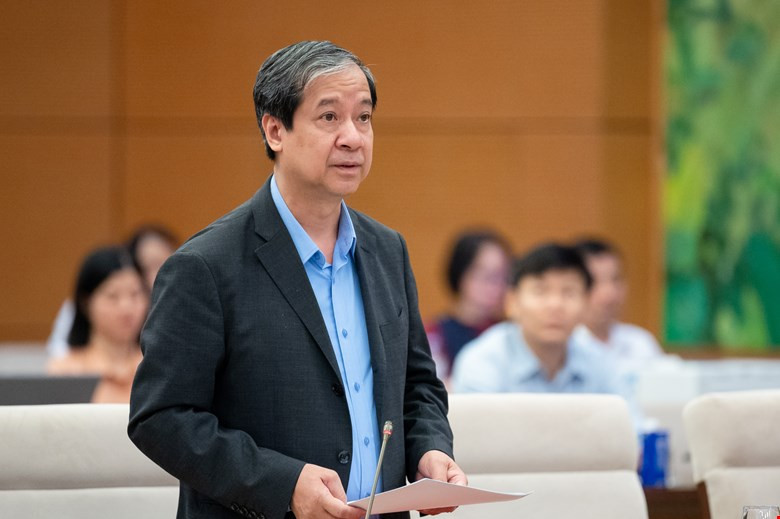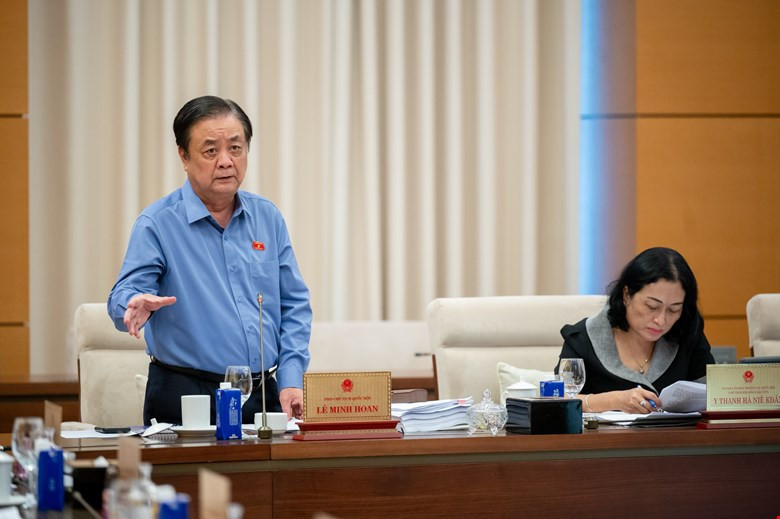On April 17, during the 44th session of the National Assembly Standing Committee, lawmakers discussed the draft resolution on universalizing preschool education for children aged 3 to 5.
Minister of Education and Training Nguyen Kim Son emphasized that the resolution would provide a legal framework to mobilize resources and ensure the necessary conditions for universal preschool education.
It would guarantee access to quality early education for all children, supporting their physical, intellectual, emotional, aesthetic, linguistic, and psychological development to better prepare them for first grade and uphold their rights.

Chair of the Committee for Culture and Social Affairs Nguyen Dac Vinh recommended a unified policy framework for children aged 3 to 5, rather than developing separate policies for different subgroups.
Meanwhile, Chair of the Committee on Deputies' Affairs Nguyen Thanh Hai called for bold, preferential, and breakthrough policies that engage social responsibility and attract investment in building preschools, especially in rural and disadvantaged areas.
“We need to tap into private capital and socialized funding - not just state budgets - supported by strong and preferential policies,” Hai said.

Citing high rates of stunting among children, Deputy Chair of the National Assembly Le Minh Hoan pointed to Indonesia's recent launch of a national “Free Nutritious Meal” program for 82.9 million students over five years (2025–2029), with a total budget of $28 billion.
He suggested that Vietnam’s Ministry of Education and Training could learn from Indonesia’s model and focus not only on providing free meals, but also ensuring their nutritional value to nurture a healthy, intelligent generation. He emphasized that nutritional science should guide meal planning to combat stunting and support cognitive development - not just eliminate hunger.
First Deputy Chair of the Committee for Economic and Financial Affairs Le Quang Manh proposed that the government urgently consolidate national demand and available financial resources to allocate a realistic and feasible budget for the policy’s implementation.
The Vinh